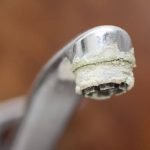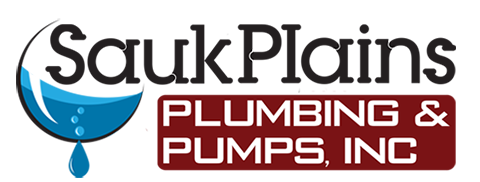
Reducing Hard Water Damage on Fixtures
Hard water residue on kitchen and bathroom fixtures ruins the aesthetics and reduces the function of the room. Hard water deposits are common in the Middleton and Cross Plains WI area and hard water damage is a reoccurring concern.
The soluble minerals in water cause the crusty formations. Municipal water treatment plants remove most of minerals from water but they do not remove them all. Without additional water treatment, the fixtures in your home are likely to get deposits. Fixtures used the most like the bathroom and kitchen sinks, can be seriously damaged. The crud on the end of a facet is only the tip of the potential hard water damage. With repeated use all the plumbing is at risk.
Remove Hard Water Damage From Fixtures
Vigilance is the only way to stay ahead of hard water damage on your bathroom, laundry and kitchen plumbing fixtures. Repeated cleaning removes stains and mineral deposits before they penetrate the surface of sinks and fixtures. An assortment of household products makes up the arsenal to fight hard water residue. Professionals suggest the following cleaning tips:
- Chrome Faucets – Wrap paper towels soaked in white vinegar around the faucet and all it to sit for an house, then rinse and dry
- Showerheads – Take the showerhead off and soak it in white vinegar overnight – at least for several hours – then scrub (an old toothbrush works well) and rinse thoroughly before reinstalling
- Shower doors – Spray the doors with white vinegar to remove lime scale and hard water stains on glass ( white wine also works!)
- Dishwasher – At least once a month add a cup of white vinegar to the machine and run it through a cleaning cycle without any dishes in it*
- Washing Machine – Add a gallon of white vinegar and run the machine empty through a wash cycle*
*Always check your manufacturer’s owner’s manual and warranty first!
- Toilet (tank and bowl) – Add 3 cups of white vinegar to the tank and use 3 cups to clean inside the bowl
- Coffee Maker – Run one brewing cycle of the machine with the reservoir full of white vinegar follow that with at least two more cycles with fresh water to rinse the machine
- Sinks & Tubs – Spray the surface with lemon juice of white vinegar and let it sit for 30 minutes before wiping it clean (multiple applications may be needed for extreme build-up)
Using Chemicals to Take On Hard Water
There are commercial, chemical agents available to clean sinks, fixtures and tiles subjected to hard water damage. While they appear to be the immediate answer, some can be dangerous in their own right. Beware of any abrasive cleaners that can permanently scratch surfaces. Scratches allow hard water stains to accumulate even faster. When considering a chemical cleaner, look for products that include “sequestrants” – chemicals like phosphoric, hydrochloric or hydroxyacetic acids. These are harsh chemicals but the work to capture and deactivate the minerals in the hard water.
WORD OF WARNING — Many of these products produce strong, dangerous fumes and should only be used where there’s good ventilation – don’t breath in any of this stuff!
Prevention Best Choice
Treating hard water damage once it’s taken hold is much more difficult than a daily routine to prevent it from getting started. Here are three ways to stay ahead of the problem:
- Don’t allow water to dry on surfaces – mineral deposits from hard water develop when water evaporates from a surface. Wiping down wet surfaces – sinks, shower walls and doors, etc. – takes away this beginning action
- Use spray cleaners in bath and shower – after each use apply a spray of shower/tub cleaner to the surface
SPECIAL NOTE – RAIN-X, the product designed to help rain water rinse off windshields in vehicles has been used on shower doors to help prevent water from cling to and drying on them!
- Install a water treatment system – The only real answer to the hard water problem in Wisconsin is a whole-house water softening system. In the long-term, considering the problems and hard water damage it prevents, the initial cost is repaid quickly.
Water Treatment Saves Plumbing
Routine cleaning and preventive maintenance to fixtures and appliances will help to remove the systems of hard water damage, but won’t get at the more serious issues secreted within the plumbing. Removing the stains and crusty buildup doesn’t address the source – too many minerals in the water supply. Only a whole house water treatment system – centered around a water softener – can do that. Water softening systems remove the minerals that cause the stains leaving clothing, skin and everything else in the house better.
Choose A Pro To Counter Hard Water Damage
Sauk Plains Plumbing and Pumps is always ready with a complete line of products for installation, maintenance and timely service – including water treatment systems to reduce hard water damage.
Call Sauk Plains Plumbing at 608-798-2121, to tackle your concerns for hard water damage, water treatment and any plumbing service in Cross Plains, Verona, Waunakee and Middleton WI.
